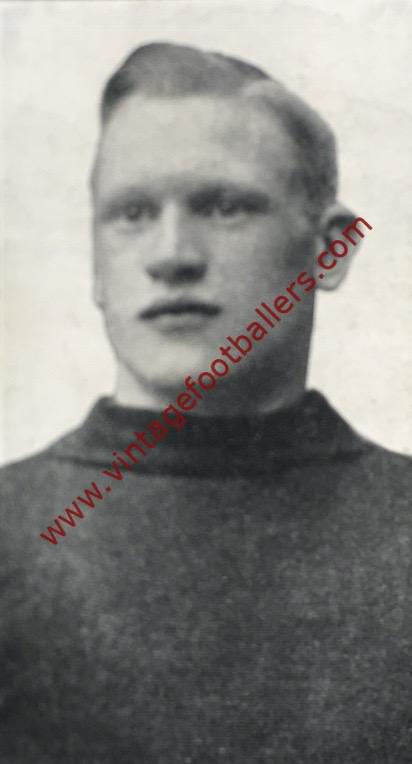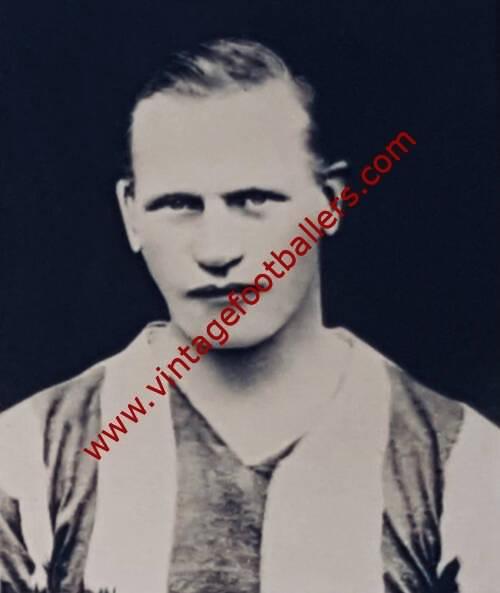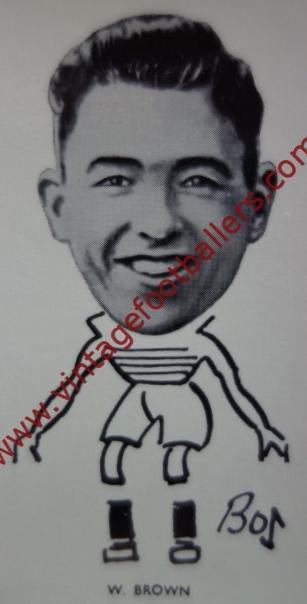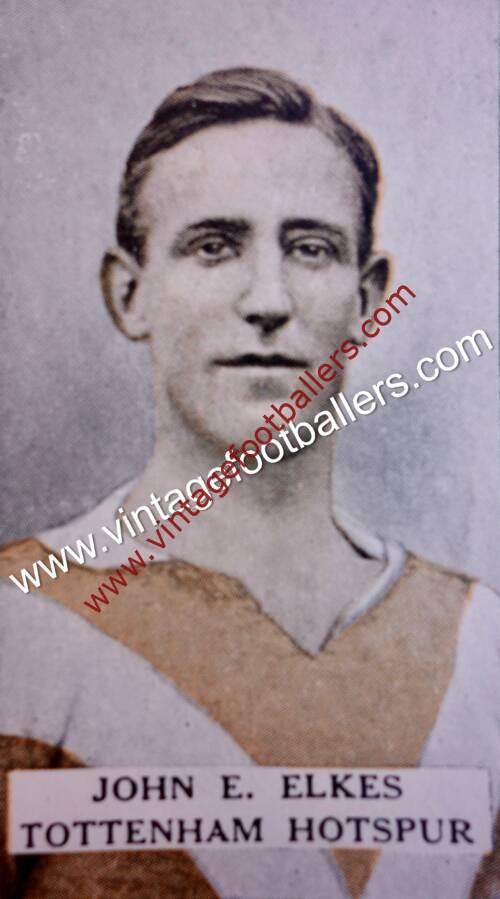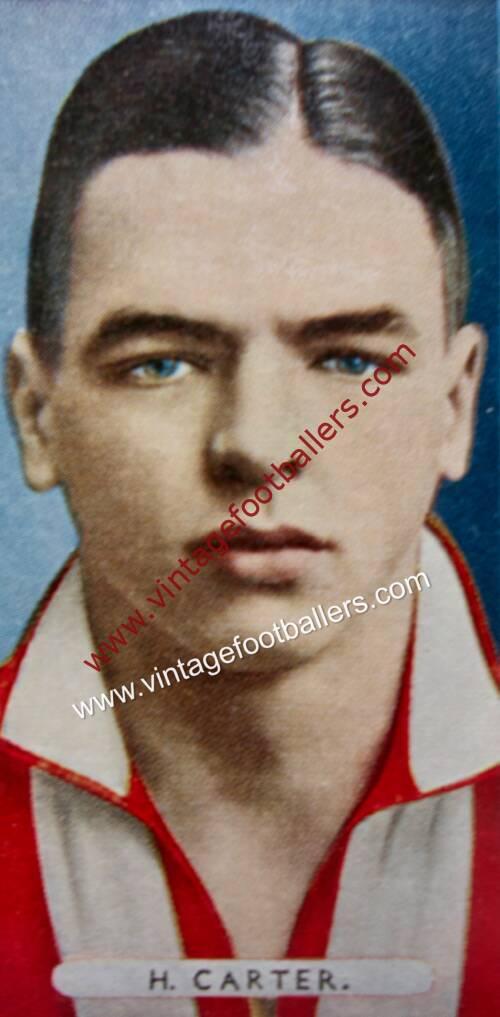Please choose your photo size from the drop down menu below.
If you wish your photo to be framed please select Yes.
Note: 16″x 20″not available in a frame.
Images can also be added to accessories. To order please follow these links
£8.95 – £49.95
Please choose your photo size from the drop down menu below.
If you wish your photo to be framed please select Yes.
Note: 16″x 20″not available in a frame.
Images can also be added to accessories. To order please follow these links
Beith, Ayrshire born left back John “Jock” Walker started his football career in 1900 with junior club Eastern Burnside, joining Cambuslang Rangers in 1901 and Burnbank Athletic in 1902. He moved into senior football in 1903 with Raith Rovers, playing for hometown club Beith, before joining Glasgow Rangers in 1902, who held his registration while he had spells on loan with Ayr Parkhouse, Royal Albert and Cowdenbeath over the next five years in various short spells, and despite being on loan he was club captain at Cowdenbeath.
He made his senior debut for Rangers at Third Lanark in August 1902, where he initially played as a winger before converting to full back from 1904, scoring 33 goals in 76 matches for Rangers through to May 1906 before spending 1906-07 at Cowdenbeath, Swindon Town player Johnny Kidd persuaded Walker to join Swindon – tempting him with the idea of higher wages. Walker wrote to Town secretary/manager Sam Allen, who agreed to the transfer, and he joined Swindon from Glasgow Rangers at the start of the 1907-1908 season.
Walker’s arrival coincided with an upturn in the Town’s performances – having finished 17th the prior season, the Town ended up in fifth place, with Walker an ever-present in the Swindon line-up. Walker was now fully established as a tough-tackling, uncompromising but skilful left back, who gave everything for the cause. A fine example of this is described by Swindon legend Harold Fleming in the 1946-47 club handbook, describing an FA Cup match at Sheffield United in 1908:
“In the second half we had the misfortune to lose Jock Walker, our left full-back, with a badly bruised thigh, brought about by an accidental kick by one of the opposing forwards. He had to leave the field and, to all intents and purposes, was finished for the game. Meanwhile, out on the field, we did our best, but we were gradually worn down and when United took the lead about twenty minutes from time the match seemed over. Then Billy Tout, our right half-back, received the ball about thirty yards from goal and, pushing it forward with one foot, let drive from well outside the penalty area. It was a regular pile driver and although the United goalkeeper covered the angle, owing to the state of the ground and the slippery nature of the ball, it was only deflected and as it dropped to the ground, we all saw that it had dropped over the goal line…….. Jock Walker, who by this time was half-dressed in the dressing room, heard that we had scored the goal, he started to take off his clothes, told the trainer to get some whisky and he then stood on the table whilst the whisky was rubbed into his bruised thigh and pummelled by the closed fist of the trainer. It must have been agony, in fact I was told that the tears simply streamed down his cheeks because the pain was so intense, but he stuck it and, when the whistle blew for the start of the extra time, Jock Walker came trotting onto the field.”
Swindon went on to win the match – a great giant killing act – and were beaten in the third round by eventual winners, Wolverhampton Wanderers.
Walker was the club’s first choice left back for five more seasons – one of the most successful periods in Swindon Town’s history, winning the Southern League Championship in 1910-1911, along with three second place finishes, reaching the semi finals of the FA Cup twice, where they were beaten by eventual winners Newcastle United at White Hart Lane in 1910 and in 1912 in a replay by eventual winners Barnsley at Meadow Lane, Nottingham, and a Dubonnet Cup victory. The Southern League title earned them a Charity Shield match with the Football League Champions Manchester United. This, the highest-scoring Charity Shield game to date, was played on 25th September 1911 at Stamford Bridge. Swindon scored four goals, while United managed eight. Proceeds from the sale of tickets at this game were donated to the survivors of the RMS Titanic.
Walker’s form was also recognised by the Scottish international selectors, and he was first selected for Scotland in March 1911 in a 1-1 draw against Wales at Ninian Park. Although he often played for Scotland in an unfamiliar right back role, he won nine caps during his time at the club – including one match versus England in 1913 which saw Walker compete against Harold Fleming on the opposite team.
He left Swindon after 248 appearances for The Robins at the end of the 1912-1913 season to play League football with First Division Middlesbrough, signing for a club record fee of £1,375 in April 1913, making his Football League debut at Manchester City that September and helping them to finish third in the League Championship during his debut season, playing 72 times for ‘Boro before the suspension of peacetime football (though he returned to guest for Swindon Town in some of the many friendly matches they played during the First World War). When the hostilities ended, he was still Middlesbrough’s first choice left back playing a further 37 times before he signed for Reading in May 1921, for whom he made 61 appearances over the next two seasons before hanging up his boots in 1923.
| Weight | N/A |
|---|
